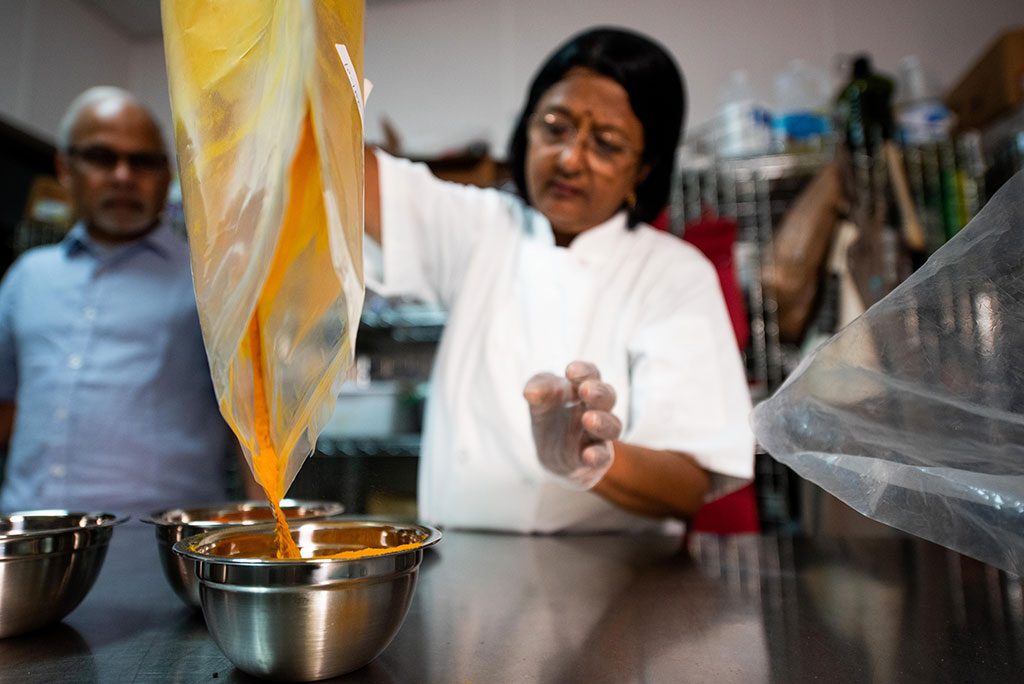
When the pandemic hit their business, Sara Parthasarathy and her husband concluded that their cook-from-scratch spice kits could help families prepare new and different meals at home.
Working many decades in the corporate world, I am no stranger to the word pandemic. I helped create a departmental plan each year outlining detailed actions on how my team would keep the business moving forward during a pandemic. However, when COVID-19 landed a gut punch to the world, I was out of the corporate world and owner of a food service business, Flavor Temptations. Unfortunately, as a new, small-business owner, I didn’t have a pandemic plan in place quite yet.
Before COVID-19, our business relied heavily on in-store and food service sales. Flavor Temptations Indian spice kits were sold in over 70 grocery stores. Bulk food service product sales to educational institutions were growing rapidly and our cook-from-scratch spice kits were used nationwide in over 50 school districts. We were experiencing large order numbers in early 2020 and preparing to meet the demand for the upcoming 2021 school year.
The pandemic forced us to cancel sampling demos and schools closed. Our sales dropped drastically. We had an abundance of useable Indian spices going to waste. However, we saw a big opportunity. With restaurants closing and more people cooking at home, we knew our cook-from-scratch spice kits could help families prepare new and different meals at home.
We listed our products on the Flavor Temptations website and Amazon to sell directly to home chefs. We added over a dozen more flavors and pack sizes to cater to the needs of these customers. Online orders proved to be successful – 10 of our products made the Top 20 New Products list on Amazon.
Navigating this e-commerce world, we continued introducing new products such as curry sauces to help busy families save time in making home-cooked meals. The sauces cut the cooking time in half while retaining the delicious and authentic taste of Indian food. We also introduced convenient spice blends packaged in resealable tins to maintain freshness.
Fortunately, our company is based in Wisconsin – a state that values the contributions of small, diverse and women-owned businesses. Organizations like the Wisconsin Economic Development Corporation (WEDC), Wisconsin Women’s Business Initiative Corporation (WWBIC) and Kiva, assisted us in shifting our business strategy during the pandemic. The funds from these organizations supported cash flow and inventory. Our sales revenue remained steady in 2020 and 2021, despite our main source of income from grocery stores and food service customers coming to a halt. We are starting to see a revival of food service customers in 2022 and we are hopeful to grow that channel even more. However, we are very focused on continuing to develop our growing online business.

